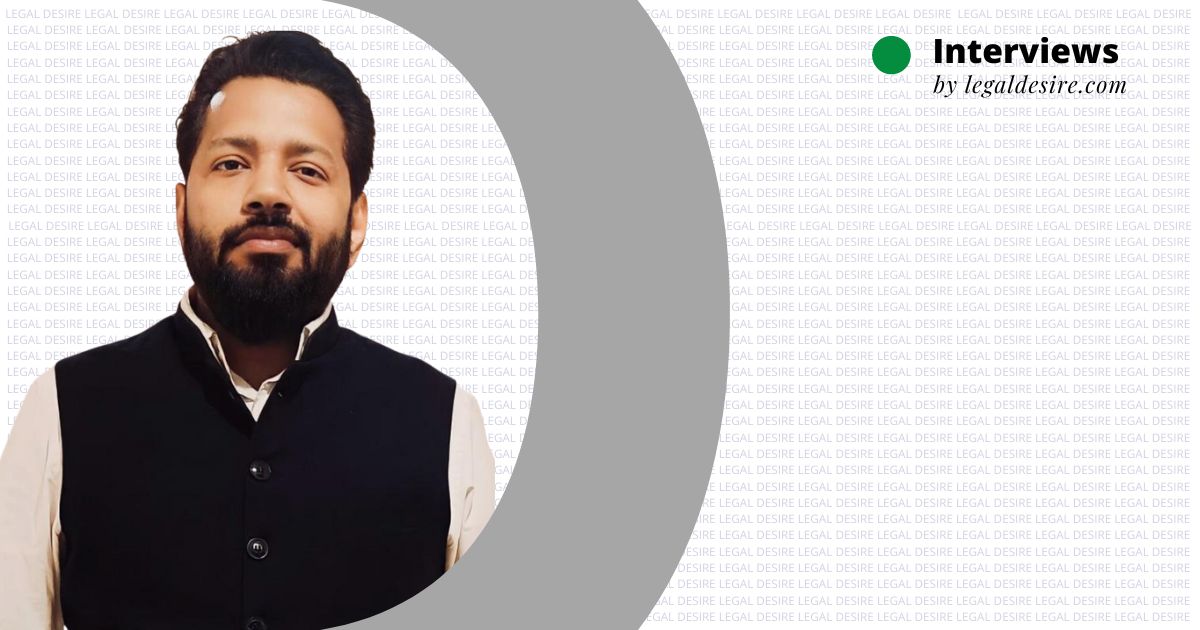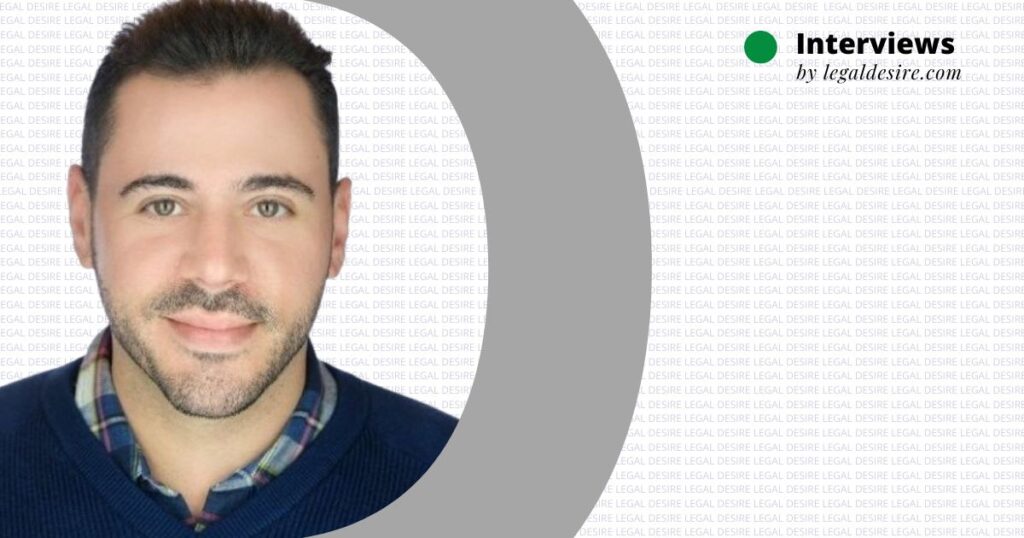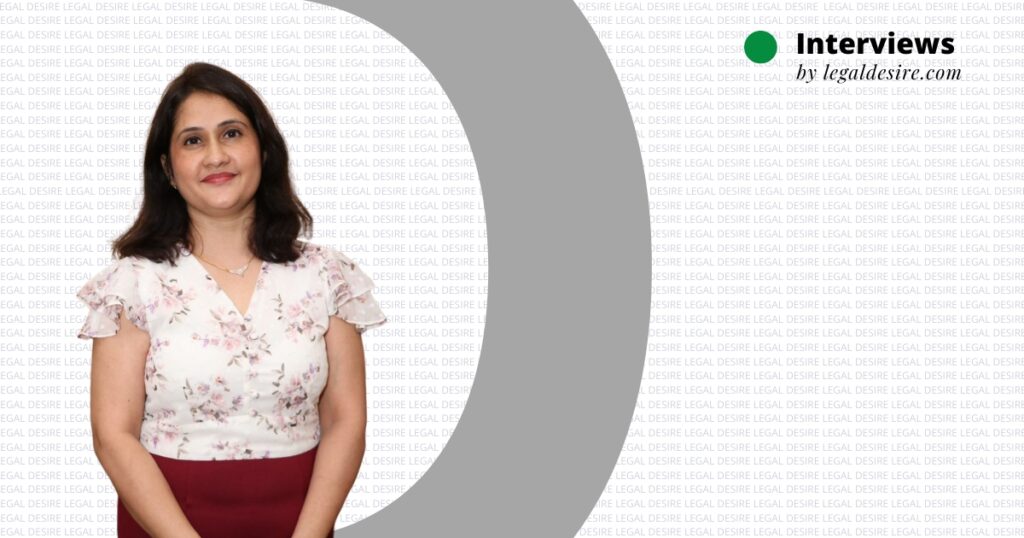Now Reading: In Conversation with Rahul Bagga Founder and Managing Director of Aumirah
-
01
In Conversation with Rahul Bagga Founder and Managing Director of Aumirah

In Conversation with Rahul Bagga Founder and Managing Director of Aumirah
In this interview, we had the pleasure of speaking with Rahul Bagga, the Founder and Managing Director of Aumirah. Our conversation covers Rahul’s journey from working as an in-house counsel to founding Aumirah, his vision for the company, and the experiences that have shaped his career. Rahul’s story, from his beginnings in chemical engineering to becoming a pioneer in IP law, is both insightful and compelling. Here’s the exclusive candid conversation:
Can you tell us about your journey from working as an inhouse counsel to founding Aumirah? What inspired you to take this leap?
I am a Chemical Engineer by academic training and obtained my postgraduate degree and diploma at Imperial College London and have spent couple years in research. My entry into the law happened via patent attorney role that I took up in several companies and firms before setting up Aumirah. I have always worked like an entrepreneur, even when I was working under someone’s banner. Therefore, there never was any special inspiration to start Aumirah. However, in the hindsight, I see starting on my own has made me realise my deepest desire of always wanting to explore other areas of the law such as corporate law, data privacy, technology laws etc., and my role under my employers was severely restricted to only exploring patent law in particular and IP law in general. While I started Aumirah as a boutique IP law firm focussed on patents, trademarks and designs prosecution and advisory; however, I had decided to develop skills and practice in other closely related areas of the law as well. I am glad that Aumirah has been gradually adding more practice areas.
What is the core vision behind Aumirah?
The core vision behind Aumirah is powered by our passion for science, technology, brands and business. I am in the field of law because I find it perfect ground for exploring and pushing the boundaries of my business, science, technology and creative training and talent. I like to ask Why and Why not a lot – and my approach to understanding and applying law thus stems from an outsider perspective and being a thoroughbred engineer, I am programmed to find solutions. In that I sync very well with my clients who are all Founders/Business Owners, investors, brand builders driven by a big vision and hunger to create an impact in their ecosystem. We don’t like to take a No just like our clients who are solving some of the biggest problems of the planet and won’t take a No either.
As the Founder and Managing Director, how do you balance leading a dynamic team of both young and experienced professionals?
One way I have been able to lead my team is by making the age invisible and giving priority to quality of work and the character of the person as well. I never dilute the authority of the person who has been tasked with certain responsibilities by interfering in their roles with some exceptions, which I am also cutting down drastically. We have perfected one mantra at Aumirah – A full exchange of trust and dedication between Aumirah and her people. So, whenever someone enters our doors, trust is placed on the person from that day, they don’t have to earn it and we also, in return, we expect dedication to Aumirah and her vision. In this approach, the exchange is now different – now the onus is on our team and colleagues to retain the trust and not lose it and the onus is on us to maintain and intensify that dedication by continuously giving them opportunities to grow their career.
What qualities do you look for when you are building your team, and how do you ensure they align with Aumirah’s goals?
Very early on in the journey, I had realised we have to prioritise character over talent. It also fits with our strategy of exchange of trust and dedication. So, the most important thing that we look for in a person is their character and integrity, and this may differ for different people at different stages of their careers. Also, at Aumirah, we not only ensure that our team aligns with Aumirah’s goals; we are constantly working to ensure that Aumirah presents opportunities and growth that aligns with their personal and professional goals as well. It works both ways.
How do you help startups, MSMEs, and large corporations adopt a more practical approach to IP rights? Can you share an example of a significant impact you’ve made?
At Aumirah, we proudly say that we are not “IP evangelists”. Personally, I don’t believe IP rights “solves” problems of a company or “play a huge role” in raising money from investors etc. especially in India and this part of the world.
For startups, we like to approach IP from the point of “pivotability” since most startup Founders are young folks or first time founders and still figuring product market fit or they may be changing logos every second or third year – our advise to them takes into consideration the capricious nature of the Founders as well as that of their business strategies – if their business strategy or go-to-market strategy changes, ideally, I wouldn’t want them to keep on filing new patents or trademarks. I would rather have them spend money on building product than spending money on IP. This balance has to be achieved. We have worked closely with several startups in domain of health tech or med tech or even Web3 or AI/ML – where it is quite common for product or business strategy to pivot but we have seldom advised them to file patents when they pivot as their existing one-two patents were done with such thought in mind.
For MSMEs, we take a portfolio approach – most of their work is in public domain so what can be protected or do they need patents at late stage at all or they need proper IP policies in place or agreements in place to ensure their hold on their IP remains strong. For SMEs, the framework is usually tailor made – are they going for a merger, or for an SME IPO or they want to raise private capital – there could be n number of reasons for an SME to suddenly look for IP rights and our advise and framework is thus designed to their specific requirements or goals.
For corporates, our approach is rather of following orders since most large corporates have their own large in-house IP team. Whenever a large corporation doesn’t have their own in-house IP team, we take product specific strategies and approaches.
What advice would you give to startups regarding IP management, especially those in the early stages of their development?
Startups in early stages of their development should focus on building product and engage a smart and focussed IP specialist who has great exposure to other areas of the law as well from the very beginning to contain the costs of their IP rights development as well as to develop policies early on regrading creation, disclosure and use of IPRs. For a direct-to-consumer brand, it would be better to understand when to file for trademark registrations, and what could be the best practices until the trademark is filed for registration. For a technology or science driven company, it would be better for them to understand when to file patent applications, and how to differentiate between product and inventions, and how many applications to really file, and how to optimise the number of filings – basically how to obtain maximum protection with minimum spend of money. At the end of the say, startups have limited money and most money must go into developing product and finding product-market fit and not in unnecessary legal and IP costs that may be severely reduced if a quality lawyer is engaged from the very beginning.
How do you stay updated with the latest trends and changes in IP law, and how does Aumirah incorporate these into its practices?
Our clients are our number one source of trends and changes in IP law. It is the science and technology and the innovations, and unique ways of selling and marketing that are being developed by our clients that pushes the boundaries of IP law – all patent, trademarks, design and copyright etc. The law copes up with the changes because if it were to be other way around, it would stifle innovation. Aumirah is quick to incorporate new learnings from one area of technology into another area of technology. Our team routinely has knowledge sharing sessions. We challenge the status quo with innovative approaches and arguments, and have found great success.
What are your long-term goals for Aumirah, both in India and globally?
I want to establish Aumirah as the foremost IP filing and advisory firm of India with a unique global standing. We have unique ways of looking at innovation and its impact on business and as such this reflects strongly in the quality of work that we do. We take an agnostic view to an idea or brand in the beginning before committing to guarding it.
How do you envision the future of IP law evolving, and what role do you see Aumirah playing in that future?
I think IP law is going to change rapidly in coming 3-5 years, because of artificial intelligence, especially on application, delivery and operational side i.e. how the work product is going to be delivered to the clients. Aumirah is already preparing herself by incorporating proprietary AI tools into their workflow and reducing turnaround time and errors.
What life mantra do you live by, and how has it helped you in your career and personal life and what advice would you give to the younger generation aspiring to enter the field of IP law?
The life mantra that I personally live by is to not plan deeply for future and build straitjackets and inflexible frameworks. I plan my work/business on weekly basis – what I am going to do this week and what I am going to do in next two days, to accomplish any weekly agenda. I do not plan and then act. I would rather implement a poor idea quickly and then improve upon it as we go along.
To the younger generation aspiring to enter the field of IP law, my advice would be to have an acute knowledge and mastery over their area of science/technology [if entering patent law] and on business, marketing and sales [if entering trademark, design or copyright law]. I would also recommend that lawyers should also consider interning in non-legal roles such as marketing, product development, strategy to become better lawyers in future. If you want to become a wholesome IP lawyer – know the business world intimately – know the motivations of an inventor and how it is different from an entrepreneur and how that is different from an investor and how that is different from a product manager or marketer etc. These deep understanding of motivations of several people in businesses shall help you become a thorough IP lawyer.










